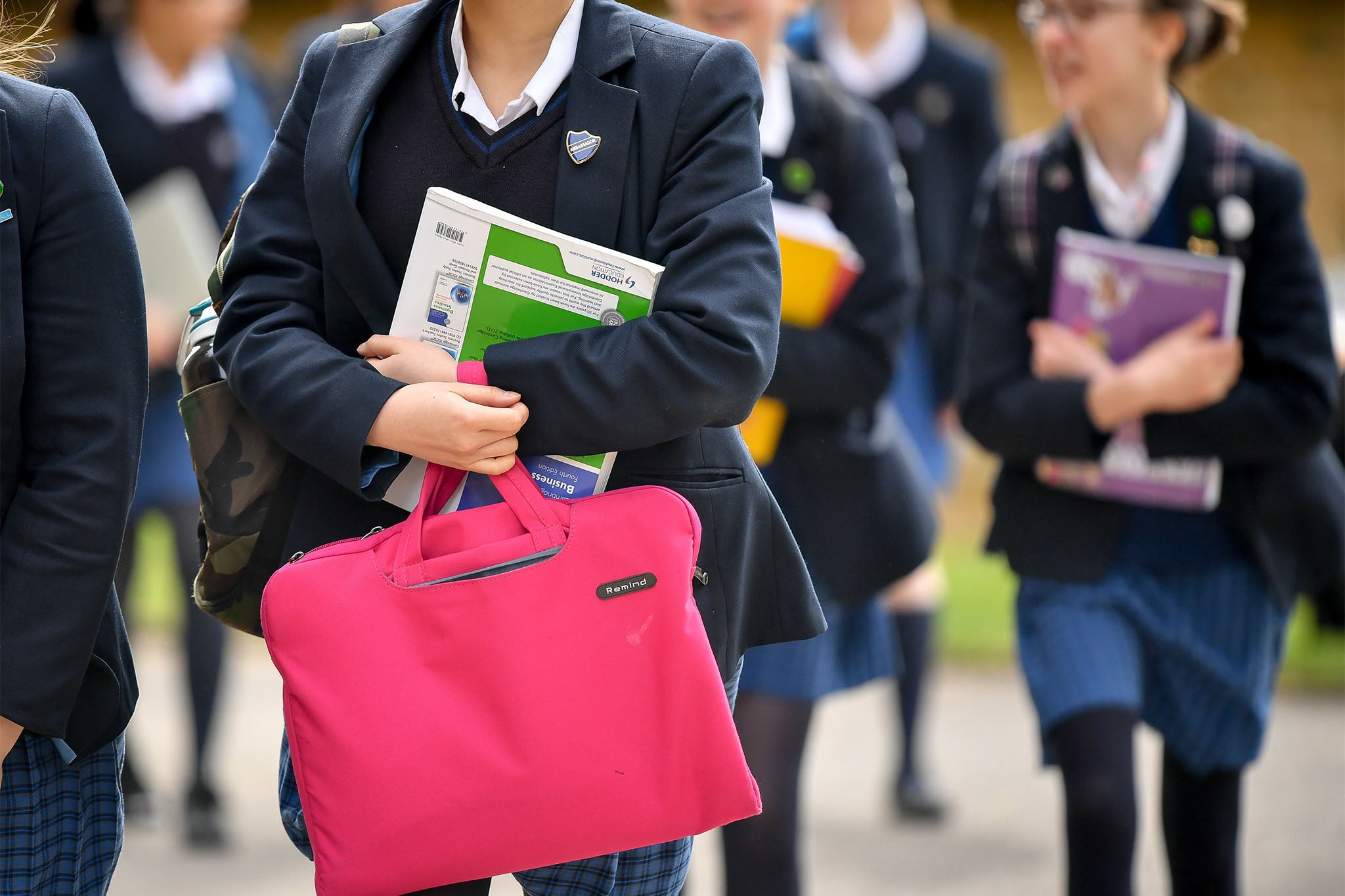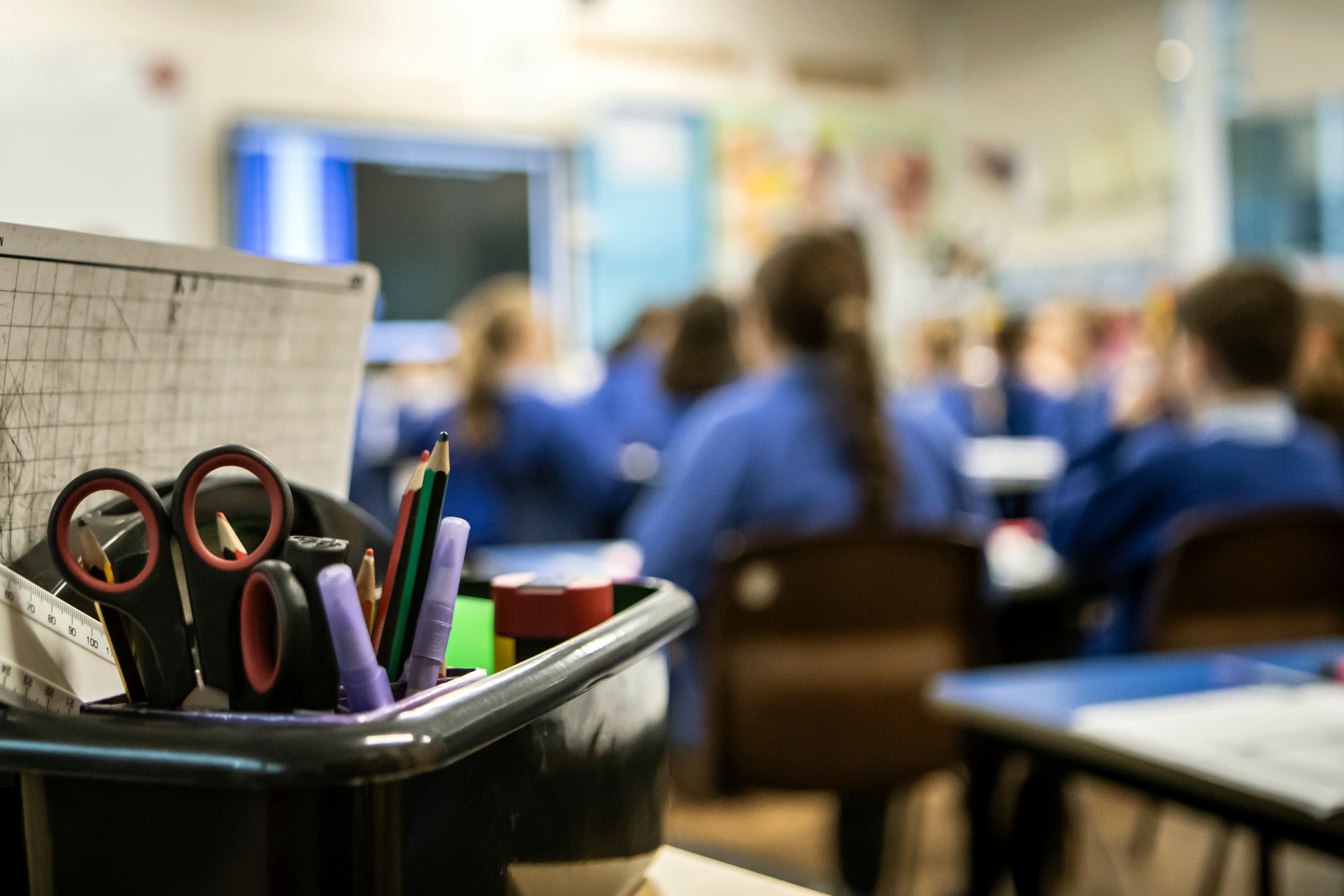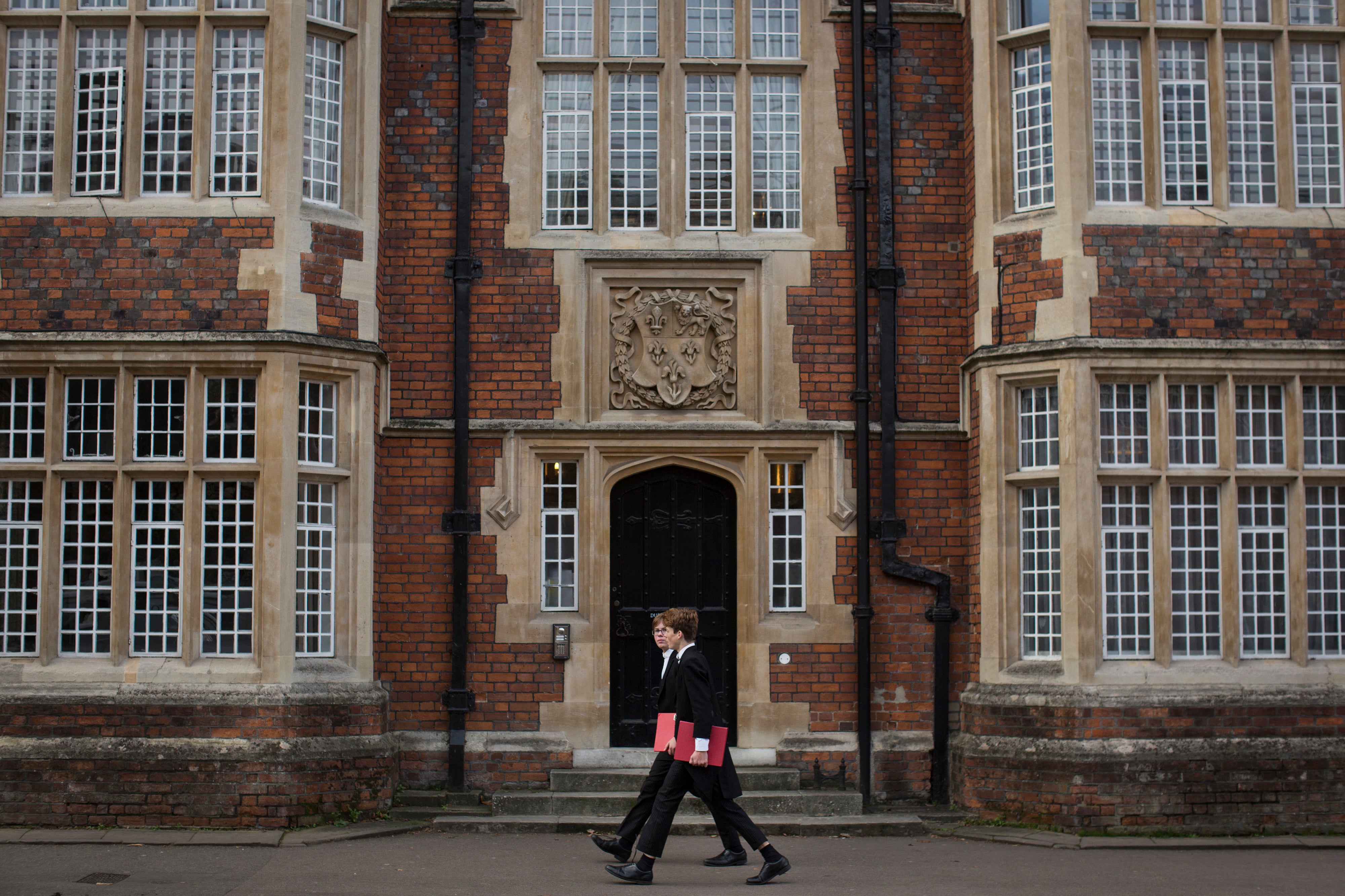‘We’re trying a state school for the first time – what’s the point of aspiration?’
As a new term begins, many children have been priced out of their private schools and parents are panicking about securing a place elsewhere. Lucy Denyer hears from parents having to sell houses and schools overwhelmed by admissions and asks if the maths really stacks up?

This week, Kate Bailey’s* eldest child will, like thousands of other children across the country, start at a new school. It is not, however, the school his parents had originally planned for him.
The 13-year-old had been due to start Year 9 at Pangbourne College, an independent co-ed in Berkshire, where fees are £9,900 per term for the senior school. But when the new Labour government announced on 29 July that VAT on private school fees would come into effect from January, Kate and her husband realised that, with three other children at private prep school, despite having paid a term’s fees in advance, they wouldn’t be able to afford it.
“I emailed the one state school we liked best that evening,” she says. “They had one place left and I have to say, they were amazing. They processed the whole thing immediately and my son was in.”
She is, she says, “reasonably happy” with the choice of school, although her son will be joining a year group that’s been together for two years already. “Luckily, he’s the most laid back of all my children and thinks it sounds great – no Saturday school and he finishes at 3pm and not 5.45 like his prep school did,” she laughs ruefully.
Kate recognises he won’t have many of the extra-curricular activities he loves – his new school does not, for example, teach the bassoon, the instrument he learns.
To ensure he doesn’t feel left out, she plans to pay for extra tuition, music lessons and sports. She is still smarting from losing a term’s school fees, given that when she and her husband signed the terms and conditions, “they hadn’t even called a general election at that point, so we thought if we had until September [2025].”
With the deadline for state school applications – 31 October for secondary and 15 January for primary – long gone, local authority and school offices shut for the summer holidays, schools as well as parents across the country have been caught on the hop.
“There’s a lot of upset, especially from people who’ve already paid for the September term and don’t want to lose a term’s fees,” says Dean Piper of the parental lobby group Education Not Taxation. “There is pressure on parents to act quickly and local authority and school admission processes aren’t set up to support it.”
The parents he is largely referring to are the ones who are just about managing to put their children through private school: they live in modest-sized houses, forgo holidays and drive beaten-up old cars. Most had no idea how much their school would be adding to fees and this summer found themselves stuck between a rock and a hard place: sacrifice the fees for this term to try and find a state school place as soon as possible or try and muddle their way through.

Lisa Phillips* is one such parent. Until now, the entirety of her civil servant’s salary has gone on funding her two daughters’ fees at an independent prep school in Somerset, a sacrifice she felt was worth it given her own “horrible” experience at state school.
But last week she and her husband put their house on the market: their plan is to buy within the catchment area of an Ofsted outstanding secondary school to get their eldest, who is currently in Year 5, in for Year 7.
“We planned to stay in a smaller house and invest in the girls’ education, but the VAT announcement completely scuppered that,” she says. This way, she adds, they can increase their mortgage and buy a bigger house – but she acknowledges the move will contribute to the general increase of house prices in the area.
Research compiled by the online estate agency Yopa last month found that it already costs an average of £116,000 more to live near an “outstanding” school than an “inadequate” – a gap that seems only likely to increase, even as Ofsted does away with one-word grades.
And what of the schools themselves? State schools in Surrey received almost 600 queries in the two weeks following the election; minutes from council meetings in Worcestershire, Hertfordshire and Coventry all show concern about the increased number of requests for school places and the potential need to deploy temporary bulge classes housed in Portakabins. Leicester Council closed phone lines on Tuesdays and Thursdays to work on the surge of state school applications it has received since the election.

One mother trying to get a Year 8 place for her daughter in Buckinghamshire to start this September told me there were only three places available in the entire county, all well over an hour away by public transport and one was a Sikh faith school.
Another reported that their nearest (oversubscribed) state sixth form offered places first to applicants from state schools within the city, then from certain parts of the county, so even applying in the right time frame and living a five-minute walk away wouldn’t help him. “I’ve got four times as many applications for year 7 than I’ve got space for; I just cannot take any more,” one secondary school head in the northwest told me days before the election.
As for the private schools, “there are a good number of schools that are passing the entire amount on [to parents], which seems to discredit Labour’s argument that the schools don’t have to pass this on,” says Piper.
Last week Eton announced that it would be passing on the full cost of the VAT to parents from January, pushing its annual fees up to £63,000, urging struggling parents to apply for bursaries. Two private schools in Scotland have closed since Labour came into power, citing uncertainty over the VAT policy as the contributing factor; another in Staffordshire this week announced its closure in December.
Other schools have announced smaller increases of 10-15 per cent – but had already previously hiked fees for this new academic year by 5 or 6 per cent, leaving parents squeezed already.

Where schools are absorbing some of the cost, Piper adds, there is concern about the quality of service, whether that’s increasing class sizes by four or five children or cutting down on extra-curricular provision. A consultation on the changes inviting submissions from any interested parties is open until 15 September, but given the January announcement, most are sceptical that the consultation is anything more than lip service.
“My son’s school has already absorbed quite a lot of the cost – the increase is about £700 per term, which is about 11 per cent,” says one mother, state-educated herself, whose child will go into Year 6 at his private prep school this term.
But, she adds, “they already whacked up the fees for this year by 6 per cent and I’m concerned that this time next year, they’ll go up again.” She and her husband left London almost a decade ago to run their own business in the north of England – a move which they hoped would free up some money to privately educate their two children and have a good quality of life.
Now, however, they have pulled their daughter out of her private school, and are going to apply for a Year 7 place at local state schools for their son for September 2025. “The whole thing, she says, “makes you wonder what the point of aspiration is.”
For many, the situation feels desperate. “My child repeated nursery and started reception a year late according to local authority intakes – moving him out of the private sector now would mean he’d have to skip a whole school year,” one parent told me.
“I’m military with two kids in boarding school – my son’s about to start GCSEs and my daughter is starting senior school next year,” another says. “I have no idea if I can afford to keep them in.” Military families are not exempt from the VAT charges; the MOD has said it will recalculate its educational allowances from January and backdate payments, but parents liable for January fees in December will have to either cough up or request a delay from the school.

Children with additional needs in the private sector are not exempt either. One parent with a developmentally delayed child, whom she can no longer afford to keep at his independent school, was told by her local authority that it would cover the cost of his taxi to a suitable state school at a cost of more than she had been paying in school fees.
Labour’s aim for the policy is to level the playing field, with money raised from the VAT levy funding more teachers in state schools, and the additional removal of business rates funding a catch-up programme for children who fell behind during the pandemic.
This year saw the gap in GCSE and A-Level results between private schools and their state counterparts grow by 29 percentage points and 27.1 points respectively – the latter the biggest gulf since 2018 when current records began.
Labour’s original calculations were based on an IFS report suggesting a “relatively limited” number of families would be affected by the changes, with between 3 and 7 per cent of children – or 20,000-40,000 – leaving their independent schools, and an overall boost to the Treasury of roughly £1.5bn per year which would fund 6,500 new teachers.
However, more recent calculations from the Adam Smith Institute suggest the actual number of children entering the state system might be closer to 15 per cent or as many as 25 per cent with an overall loss to the exchequer of £2.5bn which includes money lost from working parents cutting down their hours.
The ripple of parental panic being felt across the country is a far cry from the usual back-to-school September optimism. Kate Bailey is trying to look on the bright side. “At least we can buy a new sofa now – we’ve got the same one I’ve had since I was 25,” she says. “There’s never been any money left by the time you’ve done the trips and the extras. That part I am looking forward to. But I’m hoping it’s not going to be in exchange for the sacrifice of my child’s education.”
*some names have been changed
Join our commenting forum
Join thought-provoking conversations, follow other Independent readers and see their replies
Comments


Bookmark popover
Removed from bookmarks